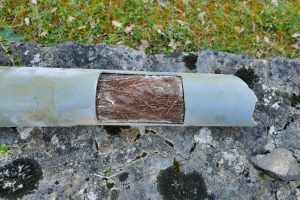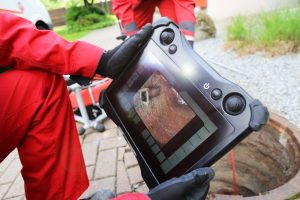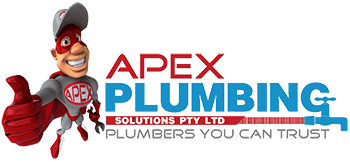Ever stared down a sluggish drain, the water swirling helplessly instead of disappearing down the pipe? Most of us have. Thankfully, for minor blockages, a trusty plunger or a drain snake often does the trick. But what happens when those trusty tools fail, and your sink or bathtub overflows with frustration? That’s when specialised drain cleaning techniques come to the rescue.
When should you consider specialised drain cleaning techniques?
The world of plumbing can be deceptively complex. While a plunger might be your go-to for a slow-moving kitchen sink, there are situations where it’s best to call in the professionals with their arsenal of specialised drain cleaning techniques. Here are some telltale signs that a simple DIY approach won’t solve your drainage woes:
- Slow draining throughout the house: This indicates a blockage deeper within the main sewer line, beyond the reach of household tools.
- Frequent clogs in the same drain: Recurring blockages in a specific drain suggest a persistent issue, like grease buildup or a partially lodged object.
- Recurring backups from multiple drains: Multiple overflowing drains point towards a blockage in the main sewer line, requiring specialised equipment to diagnose and clear.
- Foul odours emanating from drains: This unpleasant aroma often signifies a decaying blockage deep within the pipes, best handled by a professional plumber.
What types of drain blockages require specialised techniques?
Not all clogs are created equal. Some stubborn blockages require specialised drain cleaning techniques to be dislodged effectively. Here are some common culprits that necessitate a professional approach:
- Deep clogs: Sometimes, blockages occur far down the plumbing system, beyond the reach of a standard drain snake.
- Grease buildup: Over time, grease can solidify and cling to the inside of pipes, causing stubborn clogs. DIY methods often struggle with this greasy foe, requiring professional drain cleaning techniques for complete removal.
- Root intrusion: Tree roots can be relentless in their search for water, sometimes infiltrating and damaging pipes. Removing these invasive roots necessitates specialised cutting tools and expertise to prevent further damage.

- Mineral buildup: Hard water can leave behind a nasty residue of calcium and magnesium deposits. Over time, these minerals can accumulate and significantly narrow the pipes, requiring powerful drain cleaning techniques to clear the blockage.
- Foreign objects: Children’s toys, jewellery, or other unexpected items can sometimes become lodged deep within the pipes. Retrieving these objects often requires specialised tools and techniques that a plumber can provide.
What drain cleaning techniques do professionals use?
The plumbing toolbox of a professional plumber goes far beyond the humble plunger. Here’s a glimpse into some of the specialised drain cleaning techniques they use to tackle even the toughest clogs:
- Hydro jetting: Imagine a high-powered water cannon blasting away at the blockage. Hydrojetting uses a pressurised stream of water to scour the pipes, dislodging and flushing away anything in its path. This technique is particularly effective for stubborn grease buildup and mineral deposits.
- Video camera inspection: Ever wished you could see what’s happening deep within your pipes? A video camera inspection allows plumbers to do just that. A tiny camera snake is inserted into the drain, providing a visual inspection of the blockage’s location and nature. This helps them choose the most effective drain cleaning technique.

- Snaking with specialised augers: Drain snakes are a common DIY tool, but professional plumbers have access to a whole arsenal of specialised augers. These heavy-duty augers are designed for tougher clogs and deeper reaches, allowing them to break up and remove even the most stubborn blockages.
- Chemical drain cleaning: While not always the first choice, professional-grade chemical drain cleaners can sometimes be used for specific clogs. However, these chemicals can be harsh and should only be used by a qualified plumber who understands their proper application and potential risks.
- Pipe bursting or trenchless sewer repair: In extreme cases, where the pipes themselves are damaged beyond repair, specialised techniques like pipe bursting or trenchless sewer repair might be necessary. These techniques allow plumbers to replace damaged sections of pipe without the need for extensive digging, minimising disruption to your home.
Call a professional or try DIY techniques?
Knowing when to call a professional plumber for specialised drain cleaning techniques is crucial. Here are some factors to consider:
- The severity of the clog: For minor clogs, a DIY approach might suffice. However, for deeper or more complex blockages, a professional plumber’s expertise and specialised equipment are essential.
- Your comfort level with plumbing tasks: If you’re not comfortable with plumbing tasks or lack the necessary tools, it’s best to leave it to the professionals.
- Tools and expertise required: Specialised drain cleaning techniques often require specific tools and expertise. Don’t risk damaging your plumbing system by attempting a DIY job that’s beyond your skillset.
The importance of regular drain maintenance
The best way to avoid the need for specialised drain cleaning techniques altogether is through regular drain maintenance. Here are some simple yet effective practices to keep your drains flowing smoothly:
- Regular drain cleaning: Schedule professional drain cleaning at least once a year, especially for drains prone to clogs, like the kitchen sink. This preventative maintenance can identify and address minor issues before they escalate into major blockages.
- Using drain guards: Preventative measures are key! Invest in drain guards for your sinks and showers. These mesh screens catch hair, food scraps, and other debris before they have a chance to enter the pipes and cause problems.
- Avoid pouring grease down the drain: Grease is a leading culprit for drain blockages. Always dispose of used cooking oil and grease responsibly – never pour it down the drain. Instead, let it cool and solidify, then discard it in the bin.
By following these simple tips, you can significantly reduce the risk of encountering blockages that require specialised drain cleaning techniques.
Conclusion: Keeping your drains healthy
A healthy drainage system is essential for a comfortable and hygienic home. By understanding when specialised drain cleaning techniques are necessary and taking proactive steps towards drain maintenance, you can avoid the inconvenience and potential damage caused by blocked drains.
Don’t let drain blockages get you down!
If you’re facing a stubborn clog that’s beyond the reach of your DIY skills, don’t hesitate to call Apex Plumbing Services. Our experienced and licenced plumbers are equipped with the latest drain cleaning techniques and expertise to tackle any blockage, big or small. We offer a fast, reliable, and affordable service to get your drains flowing freely again, so you can get back to your day without the hassle.
Contact Apex Plumbing Services today for a free quote and experience the difference specialised drain cleaning techniques can make!


